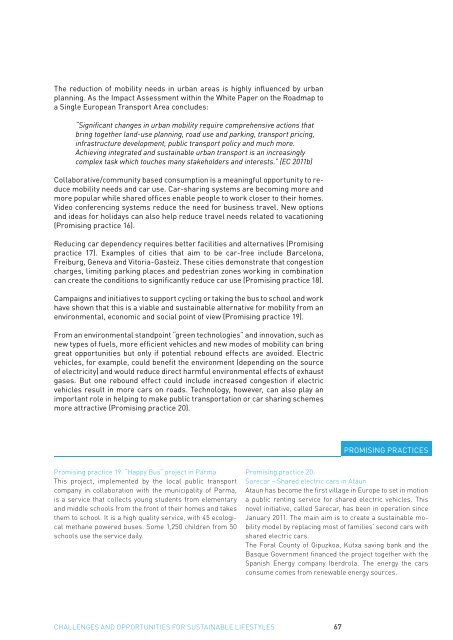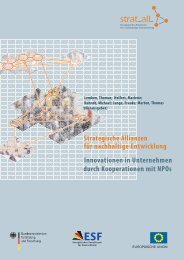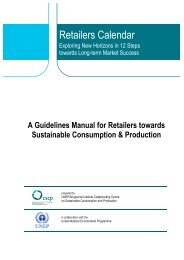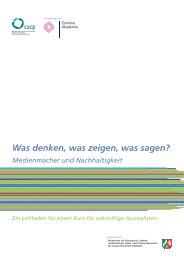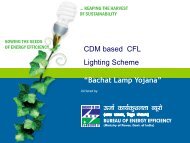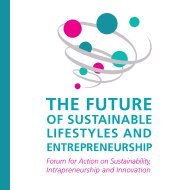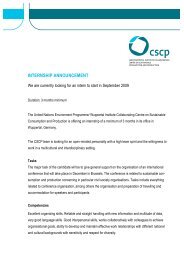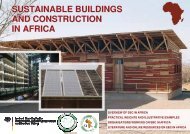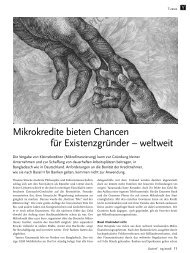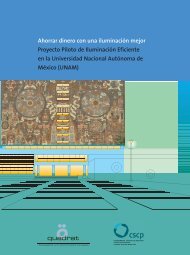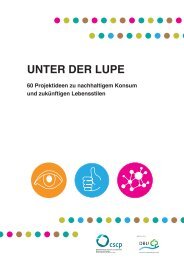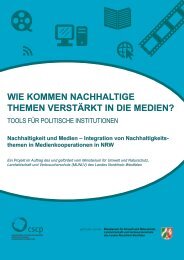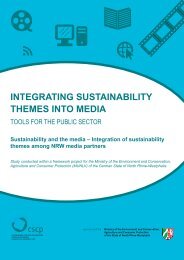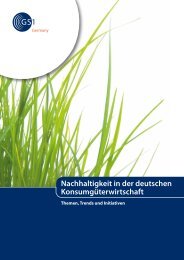today's facts & tomorrow's trends - SPREAD Sustainable Lifestyles ...
today's facts & tomorrow's trends - SPREAD Sustainable Lifestyles ...
today's facts & tomorrow's trends - SPREAD Sustainable Lifestyles ...
Create successful ePaper yourself
Turn your PDF publications into a flip-book with our unique Google optimized e-Paper software.
The reduction of mobility needs in urban areas is highly influenced by urban<br />
planning. As the Impact Assessment within the White Paper on the Roadmap to<br />
a Single European Transport Area concludes:<br />
“Significant changes in urban mobility require comprehensive actions that<br />
bring together land-use planning, road use and parking, transport pricing,<br />
infrastructure development, public transport policy and much more.<br />
Achieving integrated and sustainable urban transport is an increasingly<br />
complex task which touches many stakeholders and interests.” (EC 2011b)<br />
Collaborative/community based consumption is a meaningful opportunity to reduce<br />
mobility needs and car use. Car-sharing systems are becoming more and<br />
more popular while shared offices enable people to work closer to their homes.<br />
Video conferencing systems reduce the need for business travel. New options<br />
and ideas for holidays can also help reduce travel needs related to vacationing<br />
(Promising practice 16).<br />
Reducing car dependency requires better facilities and alternatives (Promising<br />
practice 17). Examples of cities that aim to be car-free include Barcelona,<br />
Freiburg, Geneva and Vitoria-Gasteiz. These cities demonstrate that congestion<br />
charges, limiting parking places and pedestrian zones working in combination<br />
can create the conditions to significantly reduce car use (Promising practice 18).<br />
Campaigns and initiatives to support cycling or taking the bus to school and work<br />
have shown that this is a viable and sustainable alternative for mobility from an<br />
environmental, economic and social point of view (Promising practice 19).<br />
From an environmental standpoint “green technologies” and innovation, such as<br />
new types of fuels, more efficient vehicles and new modes of mobility can bring<br />
great opportunities but only if potential rebound effects are avoided. Electric<br />
vehicles, for example, could benefit the environment (depending on the source<br />
of electricity) and would reduce direct harmful environmental effects of exhaust<br />
gases. But one rebound effect could include increased congestion if electric<br />
vehicles result in more cars on roads. Technology, however, can also play an<br />
important role in helping to make public transportation or car sharing schemes<br />
more attractive (Promising practice 20).<br />
Promising practices<br />
Promising practice 19: “Happy Bus” project in Parma<br />
This project, implemented by the local public transport<br />
company in collaboration with the municipality of Parma,<br />
is a service that collects young students from elementary<br />
and middle schools from the front of their homes and takes<br />
them to school. It is a high quality service, with 45 ecological<br />
methane powered buses. Some 1,250 children from 50<br />
schools use the service daily.<br />
Promising practice 20:<br />
Sarecar – Shared electric cars in Ataun<br />
Ataun has become the first village in Europe to set in motion<br />
a public renting service for shared electric vehicles. This<br />
novel initiative, called Sarecar, has been in operation since<br />
January 2011. The main aim is to create a sustainable mobility<br />
model by replacing most of families’ second cars with<br />
shared electric cars.<br />
The Foral County of Gipuzkoa, Kutxa saving bank and the<br />
Basque Government financed the project together with the<br />
Spanish Energy company Iberdrola. The energy the cars<br />
consume comes from renewable energy sources.<br />
Challenges and opportunities for sustainable lifestyles 67


